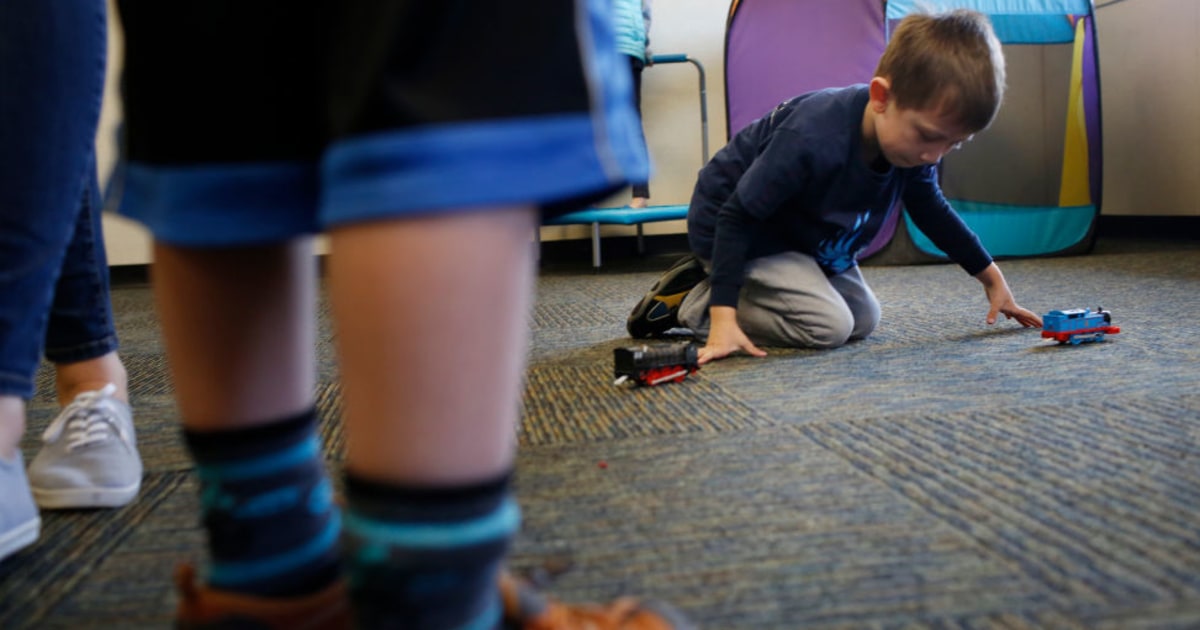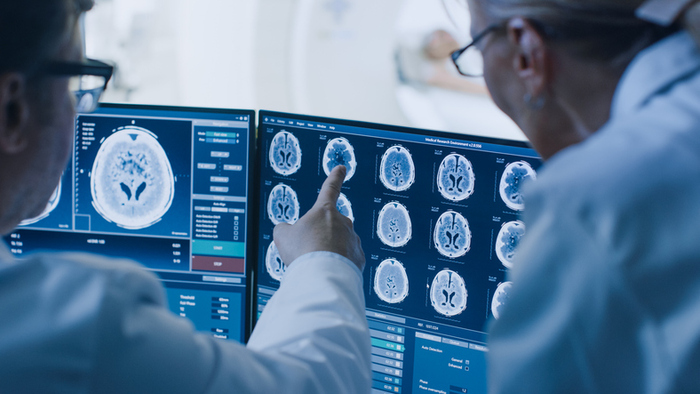By Aria Bendix -
NBC News
Autism rates tripled among children in the New York and New Jersey metropolitan area between 2000 and 2016, according to a study published Thursday in the journal Pediatrics.
The authors, a team at Rutgers University, calculated the trend by looking at Centers for Disease Control and Prevention (CDC) estimates of the number of children who have been identified with a disorder. on the autism spectrum at the age of 8 years.
["There are more than 7,600 people with false nursing degrees": a criminal network that sold credentials is dismantled in Florida]
Although there is no medical test for autism, the CDC has established a network of 17 centers across the country that calculate autism rates based on a combination of formal medical diagnoses and records from schools and health care providers.
Nationally, rising autism rates have been similar to the trend in New York and New Jersey, according to a 2021 CDC report. One in 54 children had been diagnosed with autism by age 8 in 2016, compared to 1 in 150 in 2000.
Advances in diagnostic capabilities and a greater understanding and awareness of autism spectrum disorder appear to be largely driving the increase, according to the Rutgers researchers.
But there is probably something else: Genetic factors, and perhaps some environmental ones as well, could be contributing to this trend.
[Nearly 40% of Americans avoid going to the doctor for financial reasons. We explain how to save on healthcare]
Exactly what those other factors are is still unknown, but researchers are at least clear on one fact: Autism has nothing to do with vaccines.
Clinical specialist Catey Funaiock, left, watches as Marlaina Dreher and her son, Brandon, participate in the pediatric eating disorders program at the Marcus Autism Center in Atlanta in 2013. David Goldman/AP
“We have known for sure for many years that vaccines do not cause autism,” says Santhosh Girirajan, an associate professor at Pennsylvania State University who studies the genetic basis of neurodevelopmental disorders and was not involved in the new study.
“On the other hand, what we really don't know is: what are the real, clear environmental factors to avoid?” he added.
The Rutgers study found that in New York and New Jersey, the proportion of 8-year-olds diagnosed with autism who did not have intellectual disability rose more sharply than the proportion who did — a five-fold increase between 2000 and 2016. , compared to a two-fold increase.
Two conjoined twins are separated after an 11-hour operation in the US.
Jan 26, 202302:00
This is most likely because clinicians have become better at identifying autism cases without intellectual disability, that is, children with average or above-average IQs who exhibit features of autism, such as impaired abilities. social problems, repetitive behaviors and communication difficulties.
These cases may be less obvious to parents, teachers or doctors than children with intellectual disabilities, who tend to have more difficulty performing everyday tasks on their own and are more likely to have difficulties in the classroom.
[These are the signs to identify an overdose and save a life in time, according to an expert]
The new study also reveals that while racial disparities in autism diagnosis have narrowed, they persist.
Historically, black and Hispanic children have been diagnosed with autism at a lower rate than white children.
The new analysis showed that, among children without intellectual disabilities, black children were 30% less likely than white children to be diagnosed with autism.
However, the difference has narrowed among children with intellectual disabilities.
"Narrowing disparities have caused autism [rates] to rise, but that doesn't mean the disparities have disappeared," said one of the new study's authors, Josephine Shenouda, an epidemiologist at Rutgers.
Shenouda and her team recommended that all young children be screened for autism during routine checkups by their pediatricians, echoing guidance from the American Academy of Pediatrics.
[Who May Benefit from Moderna's Promising 'Personalized' Vaccine for Skin Cancer Patients]
“Many of the leading paediatricians in most major areas perform universal screening as part of the developmental surveillance of children during well visits.
However, it is not done systematically, and even when it is done, the follow-up – in which parents are referred to the appropriate services – is also poor,” he said.
By his calculations, half of all American children are screened for autism.
Megan Krail works in 2016 with a child with autism at the Callier Center for Communication Disorders at the University of Texas at Dallas.LM Otero / AP
But as more children are screened and the criteria for diagnosing autism broadened also creates more opportunities for misdiagnosis, according to Girirajan.
This could further contribute to rising rates.
“You can look at a child and not be able to tell if it's ADHD or autism or just mild intellectual disability.
And what happens is that you have to use more standardized tests to have a uniform way of identifying children who have similar characteristics, ”she explained.
Beyond improvements in diagnosis, genetic factors alone could be increasing autism cases, experts say.
[Study Reveals Quitting Exercise Is Linked to Memory Loss and Brain Health]
Much of the risk of developing autism - about 83%, according to one analysis - stems from inherited genetic factors.
Girirajan estimates that between 2,000 and 3,000 genes contribute to autism, although only 100 are consistently associated with the disorder.
A child can inherit risk factors from one or both parents, and older parents are at higher risk of having autistic children.
"We're seeing trends over time in parents waiting to have children, so certainly part of the increase could be explained by the age of the parents," said Jennifer Durocher, an associate clinical professor of psychology at the University of Miami.
Girirajan said that environmental factors, such as exposure to air pollution, probably aren't significant contributors, but they could exacerbate underlying genetic risks.
A 2021 study suggested that childhood viral infections might also be a risk factor for autism in children, while other studies have hinted at associations between autism and vitamin D deficiencies, intestinal inflammation, and substance exposure. toxic chemicals.
“These are new and emerging concepts,” says Girirajan.
"We don't have strong evidence that they are actually the cause of autism," he added.









